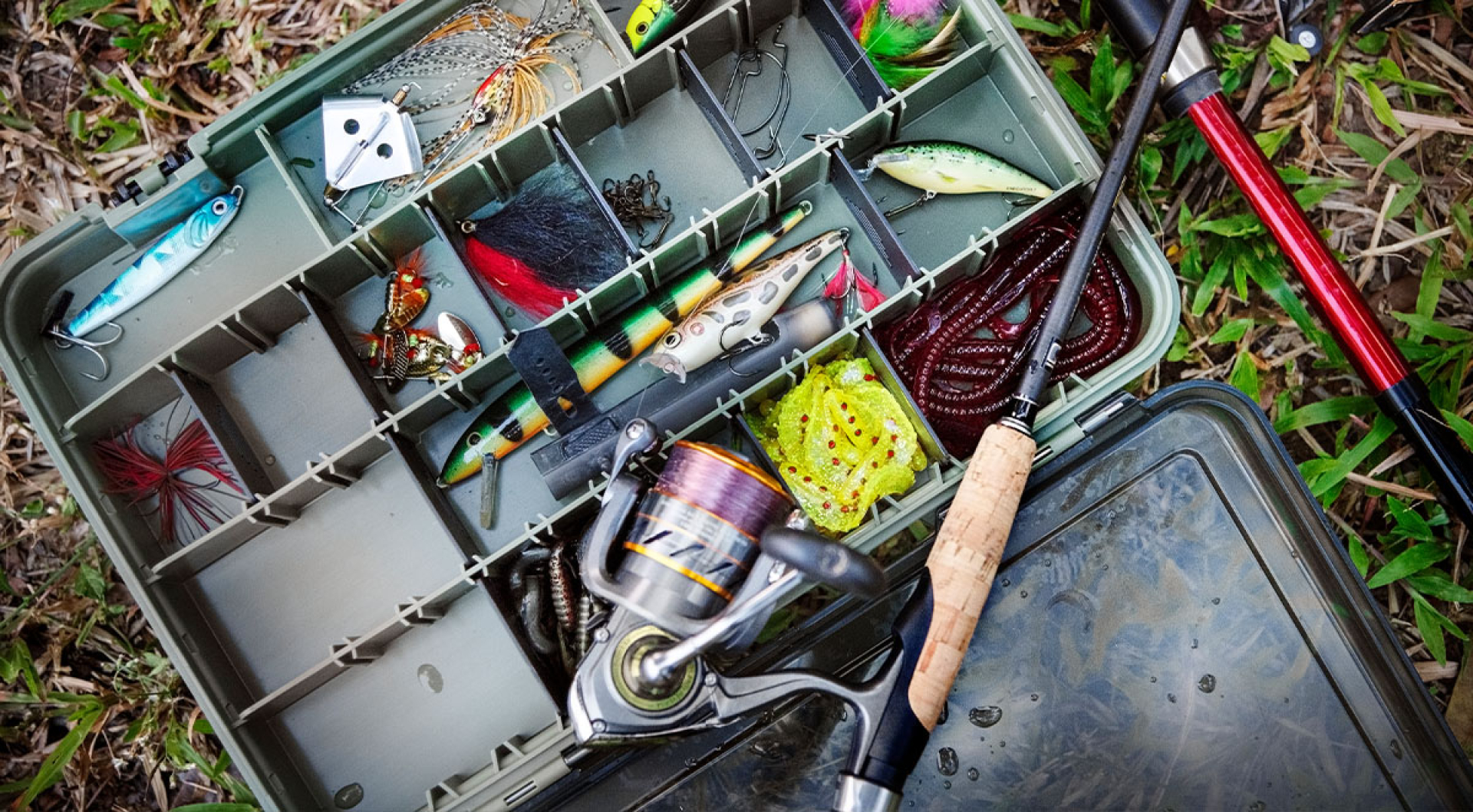What Is Fly Fishing?
Fly fishing is a method of angling in which an artificial fly is used to lure fish. The fly is cast using a long, flexible rod and a specialized fly reel.
The fly is designed to mimic the look and movement of an insect, and the casting technique is delicate and precise. Fly fishing is often used to catch trout and other freshwater species, as well as saltwater species like bonefish, tarpon, and permit.
What Is Spin Fishing?
Spin fishing is a method of angling in which a baited hook or a lure is used to attract fish. A spinning reel is used to cast the line, and the rod is typically shorter and stiffer than a fly fishing rod. The casting technique used in spin fishing is simpler and more direct than in fly fishing.
Spin fishing can be used to catch a wide variety of fish species, including freshwater species like bass, pike, and walleye, as well as saltwater species like tuna, marlin, and sailfish.
The Key Differences Between Fly Fishing and Spin Fishing
Here are five key differences between fly fishing and spin fishing:
1. Equipment
Fly fishing requires a longer, more flexible rod that is designed to cast the lightly weighted fly line accurately. The rod is typically made of lightweight materials such as graphite or bamboo, and it is often more expensive than a spin fishing rod. The reel used in fly fishing is also specialized and designed to store the fly line and provide drag for playing with the fish.
In contrast, spin fishing uses a shorter, stiffer rod that is designed to cast the weight of the lure or bait with accuracy. The reel used in spin fishing is typically a spinning reel, or baitcaster which can be used to retrieve the line quickly.
2. Casting Technique
Fly fishing requires a more delicate and precise casting technique than spin fishing. The angler must use a specific type of cast to send the artificial fly to the fish with a subtle presentation. Fly casting involves using the weight of the line to load the rod and generate the energy required to make the cast.
The angler must also be able to mend the line and control the drift tempo of the fly on the water. Spin fishing requires less finesse and is easier to learn, but it still requires a good casting technique to achieve the best results.
3. Bait
In fly fishing, the angler uses an artificial fly that is designed to imitate the look and movement of a real insect or baitfish. Fly patterns can be created to match the hatch, which means they mimic the insect species that are currently hatching on the water.
Spin fishing, on the other hand, uses a baited hook or a lure that is designed to resemble a real fish or other prey. Lures can be designed to look like minnows, worms, or other types of baitfish, and they can be used to catch a wide variety of fish species.
4. Fish Species
Both fly fishing and spin fishing can be used to catch a wide variety of fish, but certain species are more commonly targeted with one method over the other. For example, fly fishing is often used to catch trout and other freshwater species that are attracted to insects.
5. Location
The location where you are fishing can also impact the method you choose. Fly fishing is often preferred in areas where the water is shallow and clear, and the fish are more easily spooked. This includes freshwater streams, rivers, and lakes, as well as saltwater flats and mangrove swamps.
Spin fishing, on the other hand, can be effective in a wider range of water conditions and is often used in deeper or murkier waters. Spin fishing can be effective from boats, piers, jetties, and shorelines.
Should I Try Fly Fishing or Spin Fishing?
The answer to the question of whether to try fly fishing or spin fishing is - Why Not Both? The guides at Turning Stone’s Fly Fishing can help anglers learn a variety of techniques.
Turning Stone’s Fly Fishing
If you're an angler looking to improve your skills or learn new techniques, look no further than Turning Stone's Fly Fishing guides! Our experienced guides are passionate about the sport of fishing and are dedicated to helping you become a better angler.
Our guides are well-versed in both fly fishing and spin fishing techniques and can teach you a wide variety of skills to help you catch more fish. Whether you're a beginner looking to learn the basics or an experienced angler looking to fine-tune your technique, our guides can help.
We offer guided trips that cater to all skill levels, and we provide all the equipment you need to have a successful day on the water. You'll have the opportunity to learn casting techniques, how to read the water, and how to choose the right flies or lures for the conditions.
With Turning Stone's Fly Fishing guides, you'll have access to some of the best fishing waters in the country, including rivers, streams, and lakes. You'll have the chance to catch a wide variety of fish species, from trout and bass and possible steelhead late in season.
So if you're ready to improve your skills and catch more fish, we encourage you to book a guided trip with Turning Stone's Fly Fishing guides today. Our guides are experienced, knowledgeable, and passionate about the sport of fishing, and we're confident that you'll have a great time learning from them. Contact us today to book your trip and take your angling skills to the next level.

